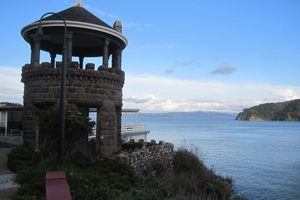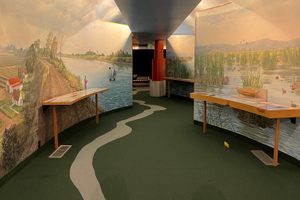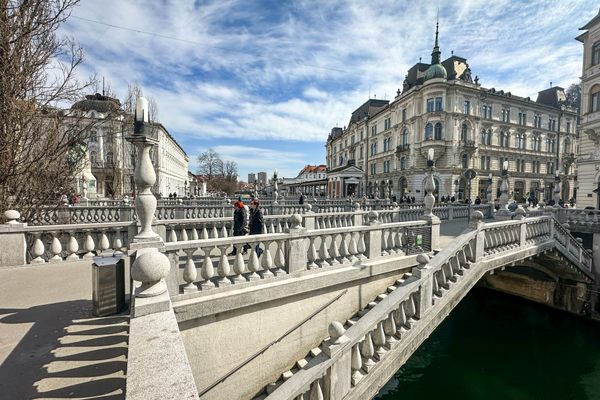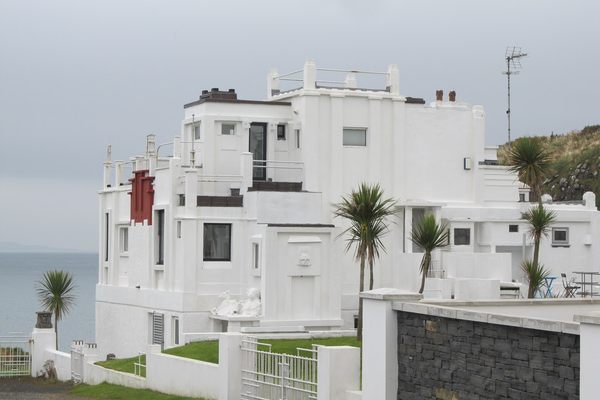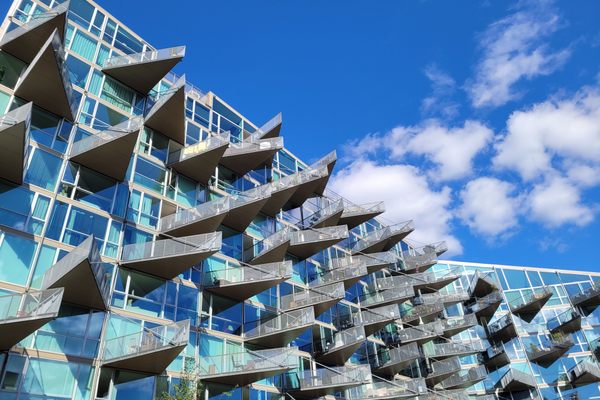About
After only 13 years on the sea, the S.S. China was scrapped, and only its luxurious saloon remains. What was once a powerful vessel for trade with the far east has been reduced to a beautiful and detailed seaside parlor in California.
In 1865 The Pacific Mail Steamship Company commissioned the construction of the SS China, launched 8 December 1866 a side-wheel steamer rigged for sail to service the route between San Francisco and the Far East. It was one of only four sister ships the United States Postal Service ordered to carry mail and passengers from California to Asia.
Although it had a colorful life, the ship was doomed to a short career because it of its wooden hull. By 1879 iron-hulled vessels had come into regular use, and after 30 round trips to Yokahama and Hong Kong, the SS China became obsolete. It was burned for scrap metal in a ship crematorium in Belvedere Cove, but first the social saloon was removed intact, barged to shore and set on pilings. It took on new life as a weekend home, and during its 90 years as a residence, locals regarded the unique shoreline structure with affection and gave it a new name - the China Cabin.
In 1978, the former first-class saloon was designated a National Maritime Monument, and the Belvedere-Tiburon Landmarks Society took on the task of restoration. With cooperation from the City of Belvedere as well as donations from community members and grants to underwrite costs of $600,000, it completed the project in 1986. The China Cabin returned to its former splendor as a Victorian drawing room.
The Victorian saloon, now a fixture on the Belvedere waterfront, boasts elaborate walnut woodwork, etched-glass windows panes with a floral design and oil-burning brass chandeliers hung with crystal prisms. The walls and arched ceiling are panels of wood, painted with crisp white paint and highlighted with gold leaf. Every detail has been restored to its original Victorian grandeur.
The other scrapped parts of the boat are still evident in the detailed remnants of the saloon. The walnut border on the white oak floor marks the location of a grand staircase that led to the first-class dining saloon and cabins on the promenade deck below. The circle on the ceiling and the compass rose on the floor indicate the spot where the mid-mast went through the saloon. To complete the picture, period furniture with original horsehair fabric is located in the sitting area. Ship's officers occupied two staterooms at the end of the China Cabin that is closest to shore.
Today, the China Cabin is a wonderful site for celebrations such as weddings, reunions, corporate meetings and private parties and is also a popular site for elopements.
Related Tags
Published
August 23, 2011










